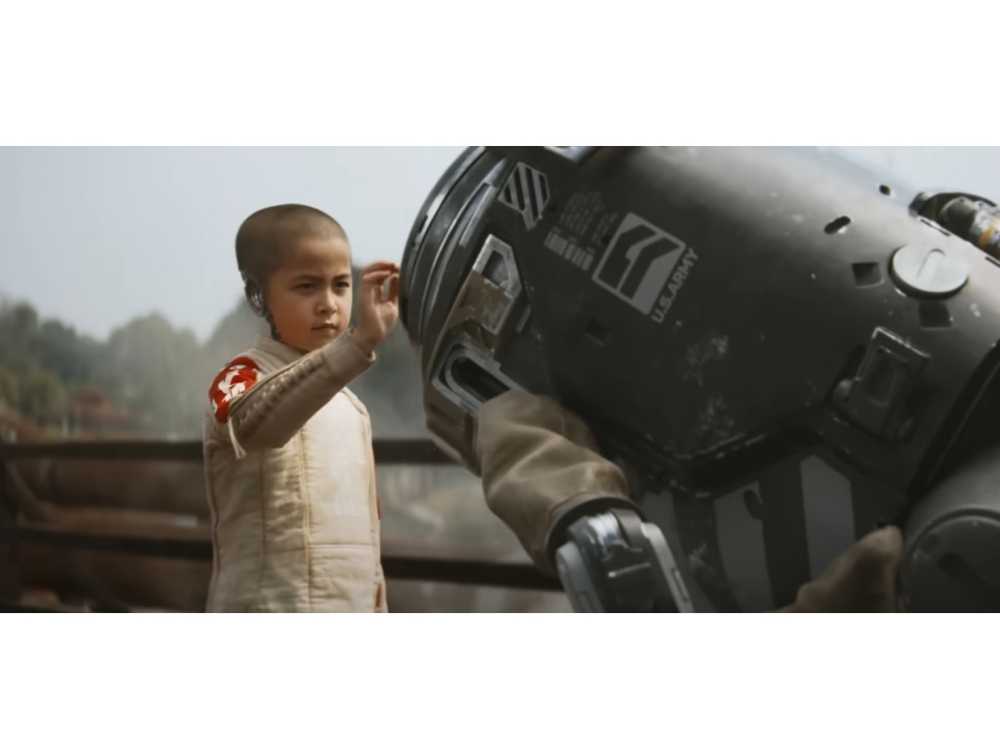SEPTEMBER 30 — The first thought that ran through my mind as I watched this latest film from director Gareth Edwards was how expensive it must’ve been to make.
Shot on location all across Asia, with an extra emphasis on South-east Asian countries like Thailand and Vietnam, and with CGI imbuing the frame from the film’s very first seconds all the way to the end, surely this one would cost at least just as much as the typical sci-fi/superhero blockbusters, meaning the budget would’ve been around the US$200 million (RM938 million) mark, if not more.
If even Oppenheimer had a budget of US$100 million, and Barbie a US$145 million budget, and the recently released The Flash had a reported budget of around US$200 million to US$220 million, surely something as big as The Creator would have cost at the very least US$150 million, right?
That was the first thing I googled after the end credits rolled for the film, and it’s safe to say that my jaw dropped when I found out that this big sci-fi extravaganza had a budget of only US$80 million!
This was probably the same reaction I had when I first found out about the budget of Edwards’ directing debut Monsters, a love story with impressively rendered CGI monsters at the film’s margins that looked so good that you’d be shocked to know that it only had a US$500,000 budget.
All this talk about budget is because The Creator is, first and foremost, a CGI-laden sci-fi action spectacle, and anyone watching will find it really hard to disagree that this is one of the most visually stunning and impressively conceptualised blockbuster sci-fi flicks that they’ve encountered in the last few years.
Everything about this film screams big, from the inventively designed robots to the huge space station/weapon hybrid called Nomad all the way to the very convincing android Simulants that populate the film.
It is, in every way, a visual spectacle, and when you add to that plenty of irresistible tear-jerking moments, you’ve got yourself a crowd pleaser, a sleeper hit that’s just waiting to find its audience.
The story is actually pretty basic, and Edwards himself has admitted that he was inspired by the reluctant father figure narrative of the Lone Wolf and Cub series of manga novels and films.
The film begins with a rather quick information dump setting the scene of the film, laying out the history of robots and AI in this film’s world through a series of retro newsreels and public service announcements, only to suddenly end them with a shot of a nuclear bomb dropped by the AI and robots on Los Angeles.

A war then begins between the Western world (who’ve banned robots and AI) and the republic of New Asia (who’s continued to develop robots and AI, living side by side with them).
We’re then put in the company of Joshua (played by John David Washington aka the son of Denzel Washington) a former US Special Forces sergeant who’s more or less lost his will to live after losing his wife and baby in a botched operation and was then tasked with finding a deadly weapon developed by the AI that could turn the tide towards their favour.
That so-called “weapon” turns out to be in the form of a Simulant kid which he later named Alphie (played by the magnetic seven-year-old newcomer Madeleine Yuna Voyles).
The film then turns into a “reluctant father figure on the run with mysterious kid” narrative, with plenty of (sometimes unanswered) questions about the meaning and value of life, the meaning and value of sentience and lots more, all of which seemingly borrowed from parts of previous sci-fi staples like Blade Runner, Akira, District 9, even war films like Apocalypse Now and Platoon, and most obviously, Neill Blomkamp’s unfairly maligned Elysium.
Some sci-fi fans might have a bit of a problem with these borrowings as it would mean that there’s really nothing much that is new being presented by Edwards and co-writer Christ Weitz here, just a recycling of previously familiar and well-loved movies, but Edwards saves this by giving the film one big aching heart, with plenty of moments that will tug at your heartstrings and make you shed a tear or two throughout the film.
And, unlike most films about AI in the recent past, Edwards sides with the robots and AI for once, presenting the US more or less as the monsters and villains of this movie, opening up room for people who want to see parallels between the incidents depicted here and the war on terror.
To be given a US$80 million budget to make what is more or less an indictment on American militarism is really quite an achievement for Edwards, if you ask me.
And to have it all coated within a big, bold visual spectacle with plenty of heart, exhilarating action set-pieces and even irresistible tear-jerking moments is something pretty rare indeed.
Turns out that Christopher Nolan is not the only Brit thinking big and making big movies in Hollywood nowadays.
* This is the personal opinion of the columnist.






















